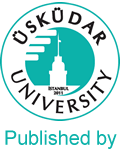Article
Makale
Belediyelerde Sağlık Hizmetlerinin Türk Mevzuatındaki Yeri
The Place of Health Services in Municipalities in Turkish Legislation
GÜRÜN Fethi
Year 2018, Issue 6, Pages:125-150
The municipalities provide a variety of health services ranging from the environment to cleanliness, human health, animal health, plant health and food health, and they build units such as health centers, clinics, hospitals and treatment facilities for these services. Health centers, clinics and hospitals can operate with their own legal entities and can also be evaluated by allocating them to other institutions. When the responsibilities of the municipalities are examined it is seen that there are some responsibility areas given by the central government to the municipalities in terms of environmental health and food health and there are some laws for the health services and facilities that have certain provisions for their responsibility and in some laws the municipalities do not have any responsibilities about these areas. In the municipalities, human health services continued increasingly in the 1990s, when social municipalism became important, as the practice of Family Medicine was in effect, but it began to decline following the introduction of this practice. Nowadays, human health related services of municipalities are generally limited to personnel health services with exceptions. However, it is seen that the investments in the health care facilities have increased, new facilities have been built, and such places have generally been allocated to the Family Health Centers affiliated to the Provincial Health Directorates. Although the direct services of the municipalities on human health tend to decrease, the authorities and responsibilities on animal health, environmental health, food health and safety continue increasingly.
Belediyeler çevre sağlığından temizliğe, insan sağlığından, hayvan sağlığı, bitki sağlığı ve gıda sağlığına kadar birçok alanda sağlık hizmeti sunmakta, bu hizmetler için sağlık ocakları, klinikler, hastaneler ve arıtma tesisleri gibi birimler inşa etmektedirler. Sağlık ocakları, klinik ve hastaneleri kendi tüzel kişilikleri ile işletebildikleri gibi, başka kurumlara tahsis etmek suretiyle de değerlendirebilmektedirler. Merkezi yönetimin yerel yönetimlere yüklemiş olduğu sağlık ile ilgili olan sorumlulukları incelendiğinde, çevre sağlığı ve gıda sağlığı açısından belediyelerin sorumlu tutulduğu, sağlık hizmetleri ve tesisleri bakımından ise bazı kanunlarda sorumluluğu yönünde kesin hükümler bulunduğu, bazı kanunlarda ise bu alanlarda belediyelerin serbest bırakıldıkları görülmektedir. Belediyelerde insan sağlığı hizmetleri sosyal belediyeciliğin önem kazandığı 1990’lı yıllardan Aile Hekimliği Uygulamasının yürürlüğe girdiği tarihe kadar artarak devam etmiş, ancak bu uygulamanın yürürlüğe girerek yaygınlaşmasına müteakip azalmaya başlamıştır. Günümüzde belediyelerin insan sağlığı ile ilgili hizmetleri istisnalar hariç genellikle personel sağlığı hizmeti ile sınırlı kalmaktadır. Ancak sağlık hizmeti tesisi bakımından yatırımların arttığı, yeni tesisler inşa edildiği ve bu gibi yerlerin genellikle Sağlık İl Müdürlüklerine bağlı Aile Sağlığı Merkezlerine tahsis edildiği görülmektedir. Belediyelerin insan sağlığı konusundaki direkt hizmetleri azalma eğiliminde olsa da, hayvan sağlığı, çevre sağlığı, gıda sağlığı ve güvenliği konusundaki yetki ve sorumlulukları ise artarak devam etmektedir.

